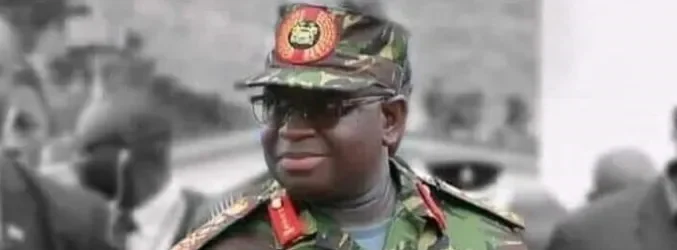By Hassan Osman Kargbo
Prominent lecturer and social analyst, Dr. Victor Moinina, has stirred debate after revealing that the ruling Sierra Leone People’s Party (SLPP) might not be prepared to hand over power to the opposition All People’s Congress (APC) in the 2028 elections.
Speaking during a recent broadcast on Liberty Online TV, Dr. Moinina argued that the SLPP’s recent political moves suggest a strong determination to maintain control of governance beyond the current electoral cycle. He pointed to the election of what he described as a “radical executive” within the SLPP as evidence of a strategy to fight vigorously to keep the party in power until and after 2028.
“The SLPP has structured itself in such a way that it is ready to resist losing power. The executive they have elected is not just a ceremonial group; it is one with the resilience and the willpower to ensure that the party remains in governance,” Dr. Moinina stated.
His comments come at a time of heightened political activity as both the ruling and opposition parties prepare for the next electoral cycle. For the APC, however, Dr. Moinina expressed concern about the party’s internal challenges, especially its approach to flagbearer selection.
According to him, the APC has a history of turning relatively unpopular candidates into major contenders during presidential elections, a pattern he described as risky but politically transformative. He noted that the party often selects aspirants who may initially lack wide popularity but, through political dynamics and campaign strategies, emerge as formidable candidates.
“The APC has a unique but controversial approach to leadership selection. What seems unpopular at first often becomes formidable with time. This pattern is part of their political DNA,” he explained.
However, Dr. Moinina warned that the ongoing infightings within the APC ahead of its lower-level elections could weaken the party’s chances if not resolved swiftly. He emphasized that internal divisions, if left unchecked, could prevent the APC from presenting a united front strong enough to challenge the SLPP in 2028.
“The APC must put its house in order before the lower-level elections. These internal disputes could become a major stumbling block if the party wants to position itself as a credible alternative to the SLPP,” he said.
His analysis underscores broader concerns about Sierra Leone’s political future as the country edges closer to another high-stakes election cycle. Political observers have noted that tensions between the SLPP and APC remain a defining feature of the nation’s democracy, with both parties historically alternating in power.
Dr. Moinina’s remarks are expected to spark further debate among political stakeholders, civil society, and ordinary citizens about the nature of democratic governance in Sierra Leone. While his assertion that the SLPP may not be ready to hand over power has been viewed as provocative, it also raises important questions about the resilience of democratic institutions and the credibility of electoral processes in the country.
As 2028 draws nearer, both the SLPP and APC face the challenge of proving their commitment to democratic values, unity, and stability. For now, Dr. Moinina’s comments have set the stage for what could be an intense political conversation in the years ahead.











